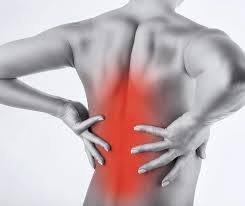How Medications Can Help Ease Muscle Stiffness Effectively
Muscle stiffness is a common condition that affects millions of people worldwide. It can occur due to various reasons, including medical conditions, excessive physical activity, or prolonged inactivity.

Muscle stiffness is a common condition that affects millions of people worldwide. It can occur due to various reasons, including medical conditions, excessive physical activity, or prolonged inactivity. Stiff muscles can cause discomfort, limit mobility, and impact the overall quality of life.
Fortunately, medications can play a significant role in alleviating muscle stiffness and restoring normal function. This article explores how different medications help relieve muscle stiffness effectively.
Understanding Muscle Stiffness
Muscle stiffness occurs when muscles feel tight, making it difficult to move them comfortably. This condition can be temporary or chronic, depending on the underlying cause. Common causes of muscle stiffness include:
-
Overuse of muscles
-
Dehydration and electrolyte imbalances
-
Muscle fatigue
-
Neurological disorders such as multiple sclerosis (MS) and Parkinson’s disease
-
Autoimmune diseases like rheumatoid arthritis
-
Infections like tetanus
-
Side effects of certain medications
While mild muscle stiffness can often be managed with home remedies and lifestyle adjustments, severe or persistent stiffness may require medical intervention, including the use of medications.
Types of Medications for Muscle Stiffness
Several types of medications help relieve muscle stiffness. These medications work by relaxing muscles, reducing inflammation, or altering nerve signals that cause muscle tightness.
1. Muscle Relaxants
Muscle relaxants are commonly prescribed to treat muscle stiffness, particularly when it results from muscle spasms or injuries. These medications work by targeting the central nervous system to reduce muscle contractions and relieve stiffness. Some commonly used muscle relaxants include:
-
Baclofen: This medication is often prescribed for muscle stiffness related to neurological conditions such as multiple sclerosis and spinal cord injuries. It works by inhibiting nerve signals that cause muscle contractions.
-
Tizanidine: Frequently used to treat muscle spasticity in conditions like multiple sclerosis, Tizanidine reduces nerve impulses that cause muscles to tighten.
-
Cyclobenzaprine: This drug is primarily prescribed for short-term relief of muscle stiffness due to acute muscle injuries. It helps relax muscles and improve mobility.
2. Nonsteroidal Anti-Inflammatory Drugs (NSAIDs)
NSAIDs are over-the-counter and prescription medications that reduce inflammation, pain, and muscle stiffness. They are particularly helpful when stiffness is due to muscle strain, arthritis, or other inflammatory conditions. Common NSAIDs include:
-
Ibuprofen (Advil, Motrin)
-
Naproxen (Aleve)
-
Aspirin
-
Celecoxib (Celebrex)
These medications work by inhibiting the production of prostaglandins, which are chemicals in the body responsible for inflammation and pain.
3. Corticosteroids
Corticosteroids are powerful anti-inflammatory medications used to treat severe muscle stiffness and inflammation. They are typically prescribed for autoimmune conditions such as rheumatoid arthritis and polymyositis. Common corticosteroids include:
-
Prednisone
-
Methylprednisolone
-
Dexamethasone
While corticosteroids are effective, they are generally used for short-term treatment due to potential side effects such as weight gain, osteoporosis, and immune system suppression.
4. Botulinum Toxin Injections (Botox)
Botulinum toxin injections are a highly effective treatment for muscle stiffness caused by spasticity. Botox works by blocking nerve signals that cause muscle contractions, leading to temporary muscle relaxation. It is commonly used for conditions such as cerebral palsy, stroke-related spasticity, and dystonia.
5. Antispasticity Medications
These medications are specifically designed to treat spasticity-related muscle stiffness. They help by modulating nerve signals and reducing muscle tone. Examples include:
-
Diazepam (Valium): A benzodiazepine that provides muscle relaxation and relieves stiffness.
-
Dantrolene: Works directly on the muscles to reduce stiffness by inhibiting calcium release from muscle cells.
How to Use Medications Safely
While medications can effectively reduce muscle stiffness, they should be used cautiously to avoid potential side effects and dependency. Here are some tips for safe usage:
-
Follow Dosage Instructions: Always take medications as prescribed by a healthcare provider.
-
Monitor for Side Effects: Be aware of possible side effects such as drowsiness, dizziness, or gastrointestinal issues.
-
Avoid Alcohol and Drug Interactions: Some muscle relaxants and pain medications can interact with alcohol and other drugs, leading to adverse effects.
-
Use Short-Term When Possible: Many muscle relaxants and corticosteroids are best suited for short-term use to minimize risks.
-
Consult a Doctor: If symptoms persist or worsen, seek medical advice for alternative treatments.
Alternative and Complementary Therapies
While medications are effective, they are often more beneficial when combined with other treatments. Some alternative and complementary therapies include:
-
Physical Therapy: Strengthening and stretching exercises can help improve flexibility and reduce muscle stiffness.
-
Massage Therapy: Helps relax tense muscles and improve circulation.
-
Heat and Cold Therapy: Applying heat or ice packs can alleviate muscle tightness and discomfort.
-
Hydration and Nutrition: Maintaining proper hydration and consuming a balanced diet rich in magnesium and potassium can support muscle function.
Conclusion
Muscle stiffness can be uncomfortable and limiting, but various medications can help ease the condition effectively. Muscle relaxants, NSAIDs, corticosteroids, botulinum toxin injections, and antispasticity medications offer relief by targeting different aspects of muscle stiffness. However, safe usage and proper medical guidance are crucial for preventing side effects and complications. Combining medication with lifestyle modifications, physical therapy, and alternative treatments can provide the best results for managing muscle stiffness and improving overall mobility.
What's Your Reaction?
















